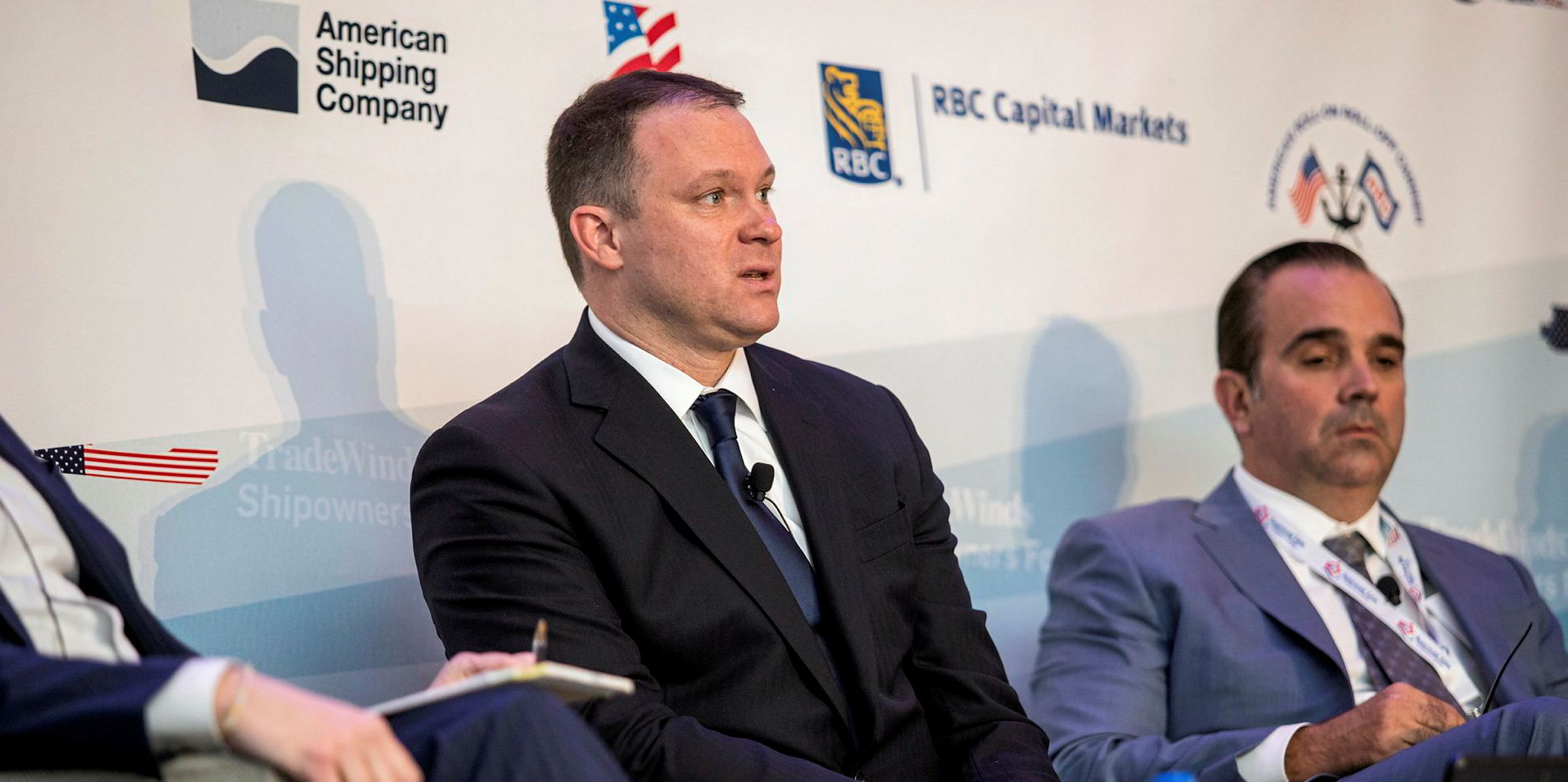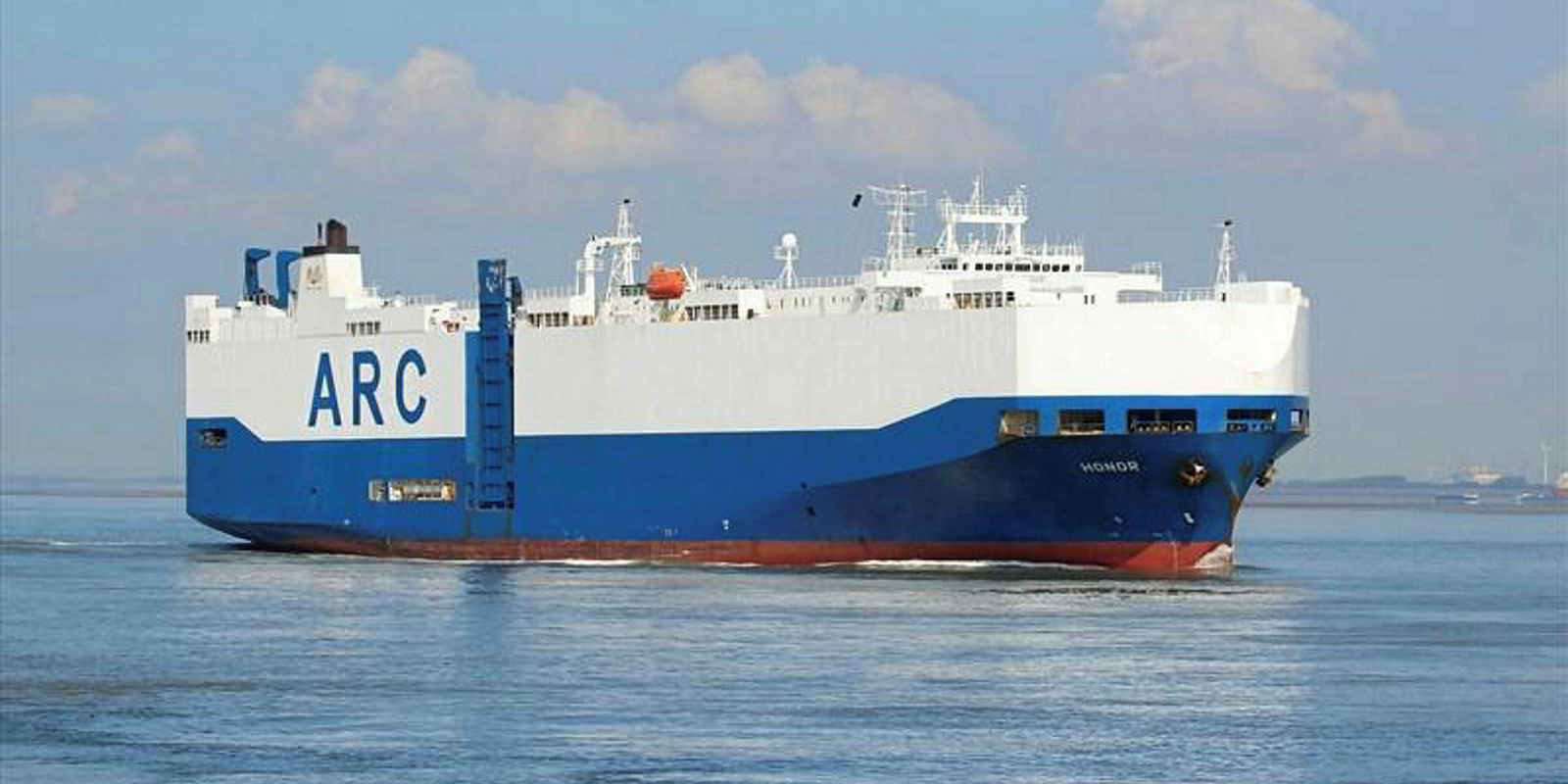The multibillion dollar US government contract secured by American Roll-on Roll-off Carriers (ARC) in the spring could be voided after a challenge from two other bidders.
The US Government Accountability Office (GAO) on Wednesday sided with Jacksonville's Connected Global Services and Houston-based HomeSafe Alliance.
The two companies had challenged a Department of Defense decision to award the New Jersey-based Wallenius Wilhelmsen subsidiary a $19.9bn contract to help move military members, civilian staff and their families.
The office, which in part oversees whether government agencies are abiding by procurement laws, recommended the decision be re-evaluated.
"ARC remains committed to consistently delivering a superior relocation experience for service members and their families," chief executive Eric Ebeling said in a statement.
"We will evaluate our options in light of the GAO's decision and determine the appropriate next steps."
Challenged status
The GAO said in a statement that Connected Global Services and HomeSafe Alliance challenged ARC's status as a "responsible contractor" and the Department of Defense's evaluation of ARC's presentations and its value calculations.
As part of its findings, the GAO recommended that a new round of oral presentations be given and a new decision be made on which company would provide the best value.
It also recommended that if ARC is again selected, a new responsibility review be conducted and that Connected Global Services and HomeSafe Alliance be reimbursed reasonable costs associated with their protests.
The GAO's full decision is sealed under a protective order, as the full text could contain proprietary information. It said a public version would be available to the public after review by counsel.
The contract was set to begin next year with ARC aiding in domestic moves and international cargoes would be added in 2022.
The contract was part of a reform effort on the part of the Department of Defense to improve relocation processes, as military families and civilian staff move frequently.
Financial impact
Danske Bank analyst Anders Redigh Karlsen said the impact to Oslo-listed Wallenius Wilhelmsen would be minimal.
While the contract would provide nearly $2bn in revenue annually, the impact on its Ebitda would be only 1% or 2%.
"[Our estimate] is close to neutral in 2021 (c. USD3m) and a bit higher in 2022 when we have estimated an Ebitda of c. USD24m from the contract (out of USD841m)," Karlsen wrote.
"We would therefore expect a limited effect on the share price from today's news release as the overall effect of the outcome for [Walenius Wilhelmsen] does not change the view of the share."
On Thursday, shares of the company closed unchanged at NOK 17 ($1.84).
Positive forces
Fearnley Securities said: "Whilst clearly a negative, we argue there are positive forces in the market more than weighing up for the potential loss of what in all fairness is a very low margin business (0-2% Ebitda margin)."
The investment bank said there are reports of low inventory and record-high car prices, which could lead to stock replenishment.
Fearnley is expecting upbeat commentary from Wallenius for the third quarter.
The investment bank is resuming coverage with a "buy" rating.
"In recent months there has been several positive datapoints for the auto industry. Firstly, US light vehicle prices have shifted up dramatically, suggesting depleted inventory levels and sound demand," analysts Espen Landmark Fjermestad, Peder Nicolai Jarlsby and Ulrik Mannhart said.
"Secondly, there has been positive export/sales numbers from the Far East as well as positive deltas on new car registrations."
The fleet side is also adjusting, with at least 20 vessels sold for recycling.
Capacity still exists through the idle fleet, however, estimated by Fearnley at 20%.
Fearnley is expecting Ebitda for Wallenius at $132m for the third quarter.
"Given positive developments in September (and most likely in October) we argue there is upside risk to 3Q volume and potential guidance," the analysts said.
"We argue a more positive momentum in the auto industry should add comfort on 2021 estimates and as such be supportive of the equity."





